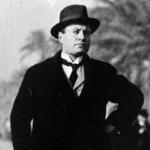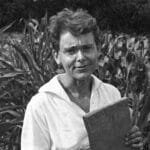Suha Tawil’s life, inextricably linked to Palestinian leader Yasser Arafat, is a captivating narrative of privilege, controversy, and resilience. From her upbringing in a prominent Christian family in Jerusalem to her controversial marriage and the turbulent years following Arafat’s death, her story continues to fascinate and provoke discussion.
From Jerusalem to the World Stage
Born Suha Daoud Tawil on July 17, 1963, in Jerusalem, she enjoyed a privileged upbringing, attending convent schools and experiencing international travel due to her father’s banking career. Growing up in Nablus and Ramallah under Jordanian rule, her early life contrasted sharply with the political turbulence that would later define her. After pursuing higher education at the Sorbonne in Paris, she entered a world far removed from her upbringing, one that would eventually lead her to Yasser Arafat.
A Controversial Union
It was in Paris, while working in public relations for the PLO, that Tawil met Arafat. Their subsequent marriage in 1990, kept secret for over a year due to anticipated backlash, shocked many. The significant age difference and their contrasting backgrounds fueled speculation, with some viewing the union as a love match, while others suspected a strategic alliance. The truth, likely a complex blend of factors, remains a subject of ongoing debate.
Life in the Public Eye
As Arafat’s wife, Tawil became a prominent figure, often described as his “gatekeeper.” She fiercely defended him against accusations of corruption, famously stating, “Every beautiful flower ends up surrounded by weeds,” a quote that encapsulates her protective stance. She gave birth to their daughter, Zahwa, in 1995. Her outspoken nature and strong opinions often placed her at the center of media attention, adding to the intrigue surrounding her life.
Loss and Legacy
Arafat’s death in 2004 marked a dramatic turning point. Present at his bedside during his final illness in Paris, Tawil claimed he had been poisoned, a claim that continues to be debated. Her subsequent years were marked by controversy, including accusations of financial mismanagement and disputes over Arafat’s inheritance. These challenges further complicated her public image and led to a strained relationship with the Palestinian Authority.
A Life in Transition
Tawil’s life after Arafat has been marked by relocation, living in Malta, Tunisia, and returning to Paris in 2019. [https://www.lolaapp.com/trevor-brazile] The reasons for these moves remain largely private, possibly influenced by personal, financial, or political considerations. While she received numerous marriage proposals, she has remained unmarried, focusing on raising her daughter.
Unraveling the Narrative
Suha Tawil’s story continues to invite scrutiny and speculation. Was she a shrewd political operator, a devoted wife, or a complex figure navigating extraordinary circumstances? Perhaps all three. Her journey offers a unique lens through which to examine the human drama that unfolds behind political headlines, a reminder of the complexities and contradictions that shape individual lives.
Where did Suha Tawil Live?
Suha Tawil’s life has been one of geographic transitions, mirroring in some ways the broader Palestinian experience of displacement. Understanding her residences provides context for her experiences.
| Period | Likely Location(s) | Possible Reasons |
|---|---|---|
| Early Life | Jerusalem, West Bank | Birthplace, family ties |
| Married to Arafat | Tunisia, Gaza Strip | PLO headquarters, establishment of Palestinian Authority |
| Post-2004 | Paris, Malta, Tunisia, Paris | Personal reasons, political considerations, stability |
While the precise reasons for her relocations remain private, factors such as family connections, financial considerations, and the pursuit of stability may have played a role. Future research might offer deeper insights into these decisions.
Yasser Arafat’s Leadership of the PLO
Yasser Arafat led the Palestine Liberation Organization (PLO) for a remarkable 35 years, from 1969 to 2004. His tenure coincided with pivotal moments in Palestinian history, including the Oslo Accords and the Second Intifada. His leadership style, often described as pragmatic yet controversial, continues to be analyzed and debated.
| Key Figures/Groups | Role |
|---|---|
| Yasser Arafat | PLO Chairman (1969-2004) |
| Mahmoud Abbas | Succeeded Arafat as PLO Chairman |
| Palestine Liberation Organization (PLO) | Umbrella group representing Palestinian people |
| Israel | Key party in Israeli-Palestinian conflict |
After Arafat’s passing, Mahmoud Abbas assumed leadership of the PLO, marking a new chapter in the organization’s history. Resources like Quizlet can offer further information on Arafat’s leadership and the PLO’s history.
- Revolution Space: Disruptive Ion Propulsion Transforming Satellites - April 24, 2025
- Race Through Space: Fun Family Game for Kids - April 24, 2025
- Unlocking the Universe: reading about stars 6th grade Guide - April 24, 2025
















